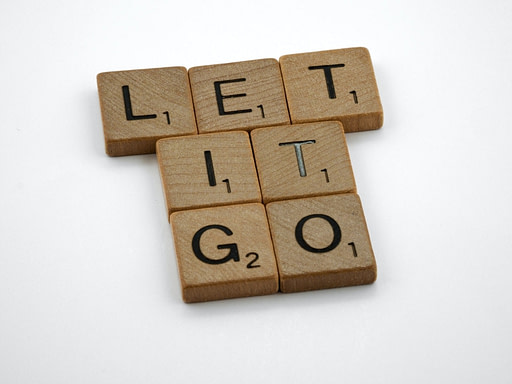Don’t give Toxicity ANY Room in your Head / Heart / Soul
How do you let go of a toxic relationship?
It’s about self-preservation, sweetheart!
Toxic relationships are, by definition:
“…very harmful or unpleasant in a pervasive or insidious way.”
Google.com Dictionary box (link)
The height of insanity is to do the same thing — or remain in the same situation — and HOPE that things will change without taking positive and intentional action to MAKE the changes happen.
Toxic Relationship Example 1: Picture Day

The first day of school is approaching, and along with it, Picture Day. Your 9th grader is choosing a shirt to wear for their pictures. Unfortunately, the shirt they really want to wear has a small, but noticeable stain near the bottom of the hem of the shirt in the front, where you can see it.
Your spouse sees the shirt and tells the young person that they MUST change their shirt and gives them a shirt that the SPOUSE thinks is appropriate. The young person respectfully but firmly resists, saying that the current shirt is their favorite and the one they really WANT to wear for picture day.
Your spouse retorts “Picture Day isn’t about YOU — it’s about the pictures I’m going to be sending to family and friends. I don’t CARE what YOU want to wear — put on the other shirt! Don’t you think so, honey?” Looking over at YOU for validation and backup.
You pause for a moment, think for a few seconds, then refuse to make a big deal out of it and instead take the side of your young person, who says reasonably “That part of the shirt won’t show in the pictures anyway, Mom — they don’t frame the photos that far down our bodies.”
Your spouse goes crazy — throwing a “tantrum” and accusing you of “never supporting” them or their ideas and further stating (in a nasty tone of voice) that the young person is “disrespecting” them and your agreement is enabling the disrespect.
Now, this isn’t the first time a power struggle has developed between your spouse and the young person in your home. The more independent and stronger your young person becomes, the more control your spouse tries to exercise OVER them, expecting unquestioning obedience like when your young person was a toddler (not a fourteen-year-old) and doing what Mommy said was the law of the land.
You try to cool things down by suggesting that your young person could borrow a shirt of yours from your closet that has no stains, but your young person stands their ground, again respectfully, and insists that they’ll be fine in the shirt THEY have chosen.
In a Toxic Relationship, the power dynamic is dependent upon one person — in this case, the spouse — getting what THEY want to the exclusion of all other input or opinions. Was it REALLY that important that your young person wear what THEY wanted them to wear for Picture Day, or was it the pushback of the spouse’s sense of CONTROL and AUTHORITY that caused the blowup?
Eventually, your young person heads out the door to school, still wearing the shirt THEY chose, and leaving behind your spouse (still in tantrum mode), complaining about THEIR feelings and the DISRESPECT shown by both your young person and you, their “supposedly” loving spouse.
Being a loving and supportive spouse does NOT mean giving “rubber stamp” approval to EVERYTHING your spouse wants, nor does it mean 100% supporting that spouse while they attempt to undermine and countermand a young person’s thoughts and opinions.
The toxicity shows itself in borderline narcissistic behavior — it’s either the spouse’s way or the highway. There’s an old saying “When Mama’s not happy, ain’t NOBODY happy!” When “Mama” insists on getting her way despite reasonable opinions to the contrary, it becomes more about CONTROL than anything else, and that is toxic.
Toxic Relationship Example 2: Corrections, Suggestions, and Erasure

It happened again.
She’s really tired of being the focus of their “corrections.” No matter what she does, or how she does it, they’ve always got a “suggestion” for how to make it better, or do it differently, or do it the way THEY would do it.
Never mind that they’re both adults and adults can have reasonable disagreements, right?
Pah! She’s tired of NEVER being enough — never hearing that her efforts are appreciated and understood, and that giving things her best shot — even if the results aren’t perfect — is good enough.
When she pushes back, it becomes a “blame game” — she’s accused of being “too sensitive” and “overly emotional.”
When she uses her “I” language and tells how the conversations make HER feel, her words are brushed aside as if she said nothing, and the remainder of the conversation is all about how badly SHE makes THEM feel.
Another deep sigh, and she’s ready to give up and give in. Saying nothing isn’t the answer — they demand capitulation. She MUST agree, however slightly, that THEY were right, and she was wrong/mistaken.
You might think that because the toxicity is more verbal and emotional than physical, that she can just “get over it” and keep on living her life. The problem with that kind of thinking? The toxicity that manifests within her — because she holds back from expressing her opinions and thoughts, her deep breathing to help counter the tears that always seem to run too close to the surface, and the constant tension headache that never seems too far away — doesn’t have any place else to go.
She swallows her emotions, deals with the tightness of her muscles, and takes ibuprofen to deal with the headaches which are coming far too often. She is in a toxic relationship, and until/unless things change for the better, she’s not going to find relief.
She toys with the idea of leaving the relationship — even the silence of loneliness seems preferable to always walking on emotional eggshells — but when things are good, they’re really, really good. As long as she agrees with them, and does whatever they want, things are good.
But how good do things have to be for her to give up her own dreams, desires, and ideas?
Where does she draw the line? And is it already too late?

Resolving the Toxicity – Stay put, Step Away, or ???
Toxic relationships don’t begin that way - at least most of the time. They start out ordinary - things are good most of the time, occasional disagreements, you know, the normal stuff.
Slowly but surely, if you are the one being poisoned (a strong term, but appropriate), the intensity and frequency ramp up. You start to feel as if you cannot win - because the rules keep changing, and the pursuit of “rightness” is inescapable.
Remaining silent is seen as assent - you are agreeing with the toxic partner/friend/relative and in effect reinforcing what they are saying. If you disagree with them, you’d SAY something, right?
If you recognize the symptoms of a toxic relationship and you want to take action, however small it is, confirm your layman’s diagnosis by disagreeing with your potentially toxic partner/friend/relative in some small way. See what kind of reaction you get.
Do they fly into “tantrum” mode and turn the discussion from what THEY potentially did to exacerbate the situation, instead focusing on YOU and how you being “difficult” CAUSED the problem?
Are you then accused of being unsupportive, unhelpful, or just plain mean? Watch out - there’s a strong clue that you’re involved in a toxic relationship.
If you’re up for a challenge - and I mean a TRUE challenge where you can rarely or never let your guard down - continue to push back. Make a promise to yourself that you won’t let the toxicity slide by without calling it out. I don’t recommend this approach, however, because never being able to let your guard down gets tiring fast and requires a LOT of energy.
Your alternative? Remove yourself from the situation. If not immediately, as soon as possible. Find reasons to separate yourself from the toxic individual - go to the library and research where you’d like to live next. Take an extension course at a local or regional community college. Join a reading group. Find a way to get out from under the toxic person’s influence.
Plan your schedule so that you spend as little time with them as possible until you can make your final getaway and find peace. While you are making plans, start reinforcing and strengthening your own sense of self.
Find activities that YOU enjoy and devote time to them - in an environment that promotes your autonomy and confidence, and that’s easily accessible to you and affordable for you. Build a reserve of emotional strength, supplement that with physical strength (a stress-reducing workout or exercise program), and do it all with the goal of a healthy emotional life and ultimate freedom at the end.
Start or update your affirmation practice to include specifics about freeing yourself from your soon-to-be-former toxic relationship and concentrate on what you are building - a healed, whole, and peaceful life that suits YOU.

Affirmations to Empower You to Let Go Of Toxic Relationships
I am healed, I am whole, and I am ready to take control.
I am at peace, ready to move forward with the rest of my life.
I find it easy to let go of toxic people.
I find it easy to let go of toxic relationships, they never serve me.
I am open and ready to receive someone new.
The last chapter has closed, and I have turned the page to a new chapter in my life.
My heart is happy. My heart is healed. My heart is whole.
I am whole and I am healed.
No matter what happens, I know I am and will be okay.
This is a new beginning, and my life will be positive from here on out.
Even though my heart hurts now, I will find happiness and I deserve love.
I don’t need someone else to make me happy, I will find happiness within myself.
I choose to let go of dysfunctional relationships and embrace harmony, happiness, and health.






